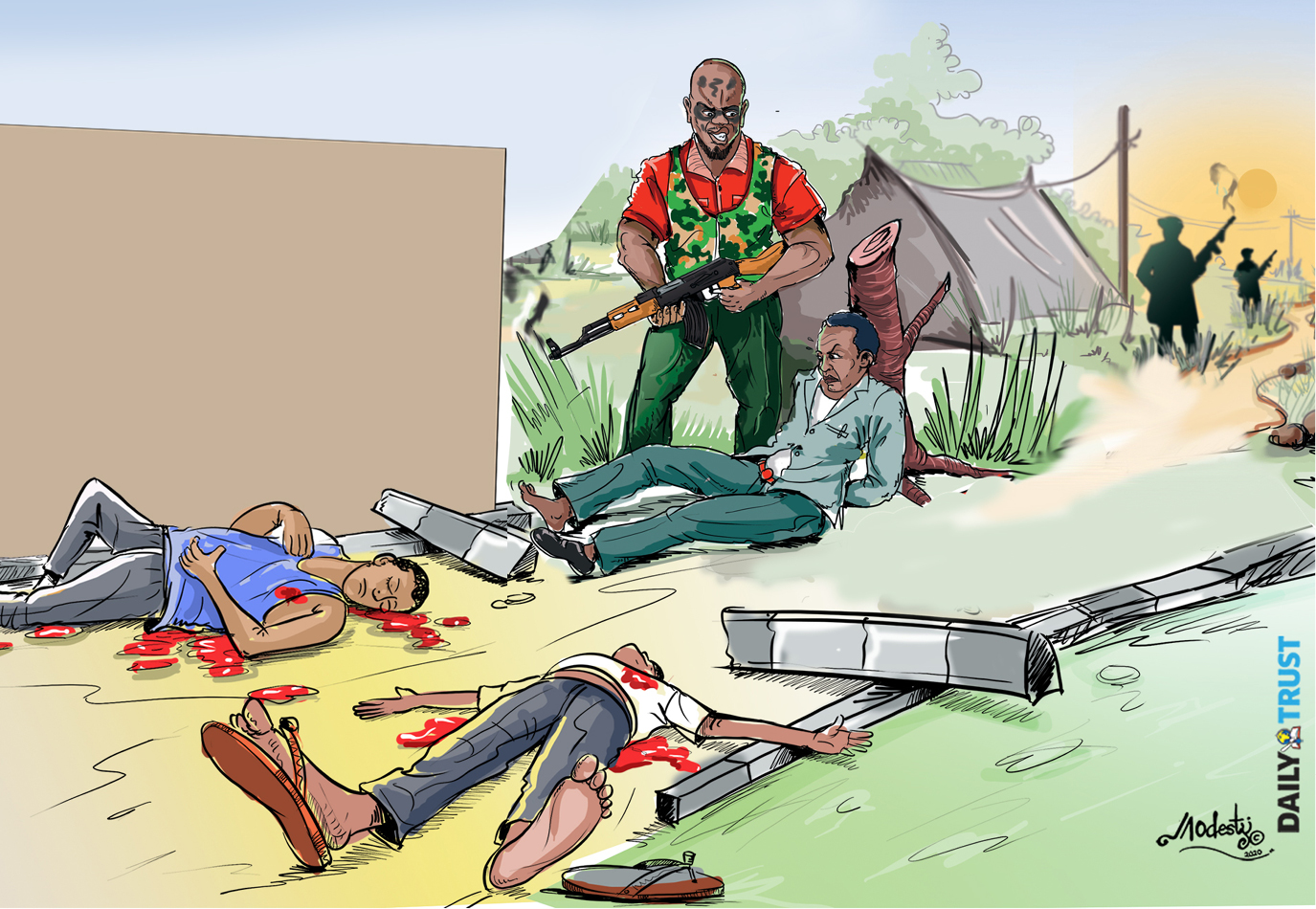Will insecurity end in Nigeria?
Since the egress of the military from the political background and the enthronement of democracy in Nigeria many years ago, Nigerians have seen unprecedented security challenges that have put the government and her citizens in pandemonium. More particularly, since 2007, the state of insecurity in the country occasioned by the saddest activities of different groups […]

Insecurity
Since the egress of the military from the political background and the enthronement of democracy in Nigeria many years ago, Nigerians have seen unprecedented security challenges that have put the government and her citizens in pandemonium.
More particularly, since 2007, the state of insecurity in the country occasioned by the saddest activities of different groups has assumed alarming dimension.
- Oba of Benin, Obaseki differ on repatriation of looted artifacts
Nigeria makes history, shock US in pre-Olympic basketball friendly
Such activities include Bokoharam illegal activities, unconstitutional protest by unpatriotic citizens, banditry, ritual killings and more recently series of kidnapping and abductions of school students in some parts of the northern region especially North West and North Central.
This social menace induces insecurity and impede Nigeria’s efforts towards national economy. Obasanjo (1999) conceives national security as the aggregate of the security interest of all individuals, communities, ethnic groups and the entire political entity. Thus, he argues that the preservation of the safety of Nigerians at home and abroad and elimination of corruption, pursuit of development, progress and improvement of the welfare and quality of life of every citizen of Nigeria constitute our national security concern.
The issue of insecurity in Nigeria could be attributed to many factors which are, imposition of unpopular policies, corruption, unemployment, poverty, terrorism/suicide, detective intelligence gathering and coordination on the part of security agencies as well as under funding and under equipment, and external influence.
Regarding the country’s security personnel, the security agencies including the Police, DIA, Army, Navy and Air force etc should be trained and retrained in a modern way of combating terrorism. Though, this is ongoing now, it should be supported by the provision of modern equipment and facilities by the government to enhance intelligence gathering and effective coordination of the activities of security agencies in the country.
Mallam Musbahu Magayaki
